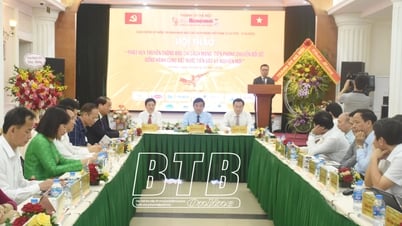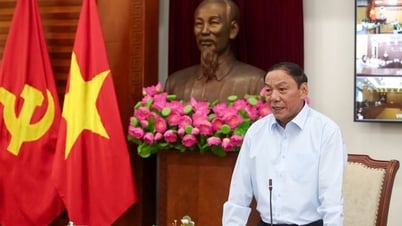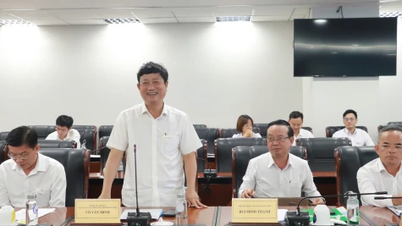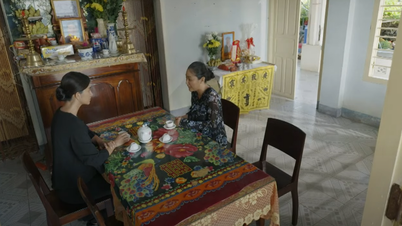According to the MoU, all eight parties support MFP leader Pita Limjaroenrat as the next Prime Minister ; agreeing on 23 points the new government needs to implement.
The leader of the Progressive Party (MFP) Pita Limjaroenrat said he will work with seven other parties to form a coalition that can form a government .
On May 22, the March Forward Party (MFP), the party that won the most seats in the recent general election in Thailand, and seven other political parties signed a Memorandum of Understanding (MoU) on the format of forming a new government, aiming to form a coalition government.
This eight-party coalition includes the Forward Party, Pheu Thai, Thai Sang Thai, Thai Liberal, Prachachart, Fair, Plung Sungkom Mai and Peu Thai Ruamphalang.
According to the MoU, all eight parties support MFP leader Pita Limjaroenrat as the next Prime Minister.
The signing of the MoU means that the leaders of the political parties agree on 23 points that the new government needs to implement (if elected), including amending the constitution, reforming the economy , strengthening the fight against corruption, drugs, and protecting the environment.
Specifically, the parties support the drafting of a new constitution to replace the current constitution promulgated by the military in 2017. The parties also agree on the need to "reform the civil service, police, military, and judicial systems according to the principles of democracy, transparency, modernity, efficiency, and maximizing the interests of the people," while abolishing compulsory military service.
On the economic front, the parties affirmed to provide financial support packages for small and medium enterprises (SMEs), support the industry and enhance the competitiveness of Thai products in the international market, as well as eliminate monopolies and promote fair competition in all sectors, such as the alcoholic beverage industry.
In foreign affairs, the parties in the coalition support implementing policies to restore Thailand's leadership role in the Association of Southeast Asian Nations (ASEAN) and maintain balanced international relations between Thailand and other major powers.
The MFP-led coalition currently has 313 seats in the lower house, a majority of the 500 seats. The MFP will need at least 376 votes - a majority of the 500 new lower house members and 250 military-appointed senators - in the parliament for leader Pita to become the next prime minister.
In a related development, according to the Bangkok Post on May 22, the Thai Election Commission (EC) is expected to rule on whether the leader of the March Forward Party (MFP), Pita Limjaroenrat, is eligible to run for election, as he owns shares in a media company.
The Bangkok Post quoted a source as saying that the EC is considering a petition by Mr. Ruangkrai Leekitwattana, a member of the People’s State Power Party (PPRP), that Mr. Pita did not declare his ownership of 42,000 shares in the media company iTV to the National Anti-Corruption Commission (NACC) before he took office as an MP in 2019. These shares are worth 5 baht each.
The law prohibits shareholders in media companies from becoming MPs. The petition also asks whether the registration of MFP MP candidates in all 400 constituencies could also be declared invalid if Mr Pita, who approved their registration, is disqualified over the iTV stake issue.
Mr. Pita had previously said he did not own the shares because he had inherited them from his father. The shares were listed in Pita's name because he was then named executor of his late father's estate. Mr. Pita said he had explained the matter to the election authority before being sworn in.
The newspaper also quoted an EC source as saying that the commission could not invoke the law on the organization of parliamentary elections in Mr. Pita’s case, because Section 61 of the law stipulates that the EC can only disqualify an individual as a parliamentary candidate before the election is over. Now that the election has ended, the EC has no legal basis to disqualify a candidate or elected MP.
Additionally, Section 82 of the Constitution states that the EC can only disqualify someone from being an MP after their case has been referred to the Constitutional Court for a ruling. Since Mr Pita has not been formally confirmed as an MP since the latest election, the EC must wait until Mr Pita is confirmed before it can invoke this section.
Meanwhile, Mr. Ruangkrai said on May 24 he would submit additional documents to the EC, including a list of iTV shareholders since 2006 and a diagram showing iTV's income from 2006 to last year, to support his report in the hope that the EC would be able to speed up its investigation and refer the Pita case to court./.
According to vietnamplus.vn
Source link


![[Photo] Prime Minister Pham Minh Chinh chairs meeting on draft Resolution of National Assembly on International Financial Center in Vietnam](https://vphoto.vietnam.vn/thumb/1200x675/vietnam/resource/IMAGE/2025/5/22/d398664ff1a140629169ea5a24e1b4d0)


![[Photo] Prime Minister Pham Minh Chinh chairs the Government's special meeting on law-making in May](https://vphoto.vietnam.vn/thumb/1200x675/vietnam/resource/IMAGE/2025/5/22/1c880aae96fd4e0894abc47a46fe19ba)
![[Photo] General Secretary To Lam chairs a working session with the Central Internal Affairs Commission](https://vphoto.vietnam.vn/thumb/1200x675/vietnam/resource/IMAGE/2025/5/22/3b7790f499da45b2803d8ae253207ef1)
![[Photo] Press delegation meeting to visit Truong Sa and DK1 Platform](https://vphoto.vietnam.vn/thumb/1200x675/vietnam/resource/IMAGE/2025/5/22/6b8d232877ec421a9e8187d83b9f8006)


















































































![[Podcast] Week introducing more than 500 OCOP products in Hanoi](https://vphoto.vietnam.vn/thumb/402x226/vietnam/resource/IMAGE/2025/5/22/d144aac2416744718388dbae3260e7fd)




Comment (0)